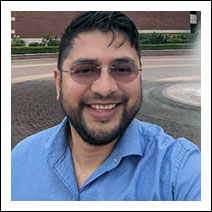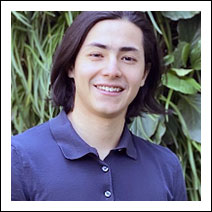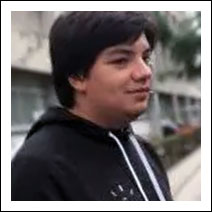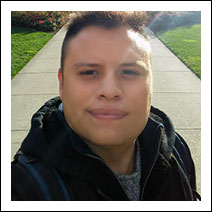
QWinter Workshop 2022 by QMexico
This workshop aims to share knowledge about Quantum Computing at the high school level, introducing basic concepts that allow knowing more about quantum computing.
QMexico will give this workshop from January 07 and 08. This course is open to anyone interested in learning how to use basic concepts about Quantum Computing, programming, and tools implemented in quantum computing. The material and live sessions will be in Spanish. However, we will be open to discussing in English since our team is bilingual.
The course will be given from January 07, 10-14 h, and to January 08, 10-14h, 2022.
Our time zone is Central Standard Time (America). We will have two integrating activities from 19:00 to 20:00.
About the program:
QWinter 2022 will be a two-day workshop on the basics and foundations of quantum computing and programming, as well as an introduction to programming through different tools. The objective is to provide basic concepts on quantum computing to the next generation of scientists interested in new environments and technologies. We will show different tools, frameworks, topics, and potential applications. We will focus on basic concepts.
The workshop will consist of three introductory talks covering the basics of quantum physics and computing, followed by three talks on the specialized topics studied by the members of QMexico. In addition, there will be an integrating (informal) activity every day of the event, where attendees can talk about the day’s material, network, or just hang out. Our material and discussion will be mainly in Spanish, but our members can discuss in English when needed.
QMexico performs this event to promote knowledge about Quantum Computing and Technology in Latin America. By attending, participating, and discussing, attendees from different countries can acquire knowledge on the area. We believe science and education are the best tools to boost a country’s development; this motivates us to promote quantum science worldwide.
Registration
Registration to the QWinter Workshop 2022 by QMexico:
Registration form to the QWinter Workshop >>
Project Coordinators

Javier Andres Orduz-Ducuara
Dr. Javier Orduz is a Research Scholar of Computer Science at Baylor University in Texas, USA. He worked in UNAM (Mexico) for five years as a Postdoctoral and Associate Professor before arriving in the USA and working with Dr. Erich Baker and Dr. Pablo Rivas. He also coordinates QMexico (qmexico.org), an academic community interested in promoting Quantum Computing in Latin America. He participates as Research Scientist in Baylor AI, a group led by Dr. Rivas (baylor.ai), is a mentor in LatinX community (latinxinai.org), and has experience teaching and researching Quantum Machine Learning, Quantum Computing, Machine Learning, and High Energy Physics.

Bruno Ramírez Galindo
Originally from Queretaro, Mexico. Bruno is currently in the last year of his Physics BSc at UNAM, Mexico’s leading university. After being introduced to Quantum Computing in his Quantum Mechanics course, he decided to enroll in a more advanced QC course and later participated in IBM’s Qiskit Global Summer School, where he met other founding members of QMexico. This year (2021), Bruno will be taking part in the USEQIP program, organized by the Institute of Quantum Computing (University of Waterloo). This will allow him to gain more advanced knowledge on the theoretical and experimental aspects of QC and QI. He expects this summer program to be a stepping stone in his pursuit of a quantum-focused graduate degree. In the following years, he hopes to gain valuable experience in what he acknowledges to be his passion, scientific research. While he is not studying quantum mechanics or programming quantum computers, Bruno enjoys music, reading, and laughing with friends and family. He also loves dogs.
Team

Diego Aguilar Muñoz
Originally from Mexico City, Diego is currently an undergraduate physics student at UNAM, where he has developed a growing interest in quantum computing, solid state physics and computational physics.
In the near future, Diego’s goal is to pursue a graduate degree in quantum technology where he will gain a deeper comprehension of quantum mechanics and will contribute to the implementation of quantum technology as a tool for scientific development.

Pablo González
Pablo is originally from Tampico, Tamaulipas. His love for invention and science was discovered at an early age as he created for himself a laboratory made from old electronics and his imagination. Pablo is currently an undergraduate student at the Instituto Tecnologico de Ciudad Madero in the career of electronic engineering. Pablo starred in various projects such as entrepreneurship, technological education and scientific dissemination. His passion for quantum programming arises from his work on machine learning and deep learning for robotics projects to improve intelligence in robots and software.

Aaron Rodríguez
Originally from the State of Mexico, Aaron is a graduate of the career of applied mathematics and computing. He is currently working in the CJF (Consejo de la Judicatura Federal).
Interested in open source software, he observes that the community and disinterested work of individuals can result in great advances for science, and there is no better time to do open science than in these moments where we can observe how distance is not an obstacle; it is an impulse.

Amadeo D. De La Vega
Originally from Mexico City, Amadeo is profoundly interested in Quantum Computing. Specifically, he would like to understand the limits of quantum computation and develop cryptographic protocols for future quantum technologies. Currently, he is researching the quantum PCP conjecture for his master’s thesis. This problem has outstanding implications in condensed matter physics. For instance, a solution may allow us to understand superconductivity at room temperature. Furthermore, he would love to contribute to the inauguration of an institute devoted to fomenting, studying, researching, and developing quantum computers in Mexico. In particular, he plans to collaborate with future quantum enterprises.
Course content
The workshop material will contain the topics listed below.
ThThe workshop material will contain the topics listed below. The live sessions will be given from 10:00-14:00 h on Friday, January 07, 2022; and from 10:00-14:00 h on Saturday, January 08, 2022. Live sessions will be held on Zoom.
- Día 1
- Intro to Physics and Quantum (JO. 60 min)
- Classical physics (25 min)
- Receso (10 min)
- Modern Physics (25 min)
- Classical physics (25 min)
- Intro to Quantum Computing (Diego & JO. 60 min)
- Quantum computing basics I
- Implementations
- Quantum computing basics II
- Quantum computing basics I
- Integrating activity (link to be shared on session)
- Día 2
- Talk by Siddartha Morales: “Calculando observables físicos usando VQE” (“Computing physical observables using VQE”) 10:00 hrs. In this talk we are going to learn the basics of the Variational Quantum Eigensolver and how it can be used to compute several physics observables.
- Talk by Victor Soares: “Corrección del error cuántico: Un primer paso para alcanzar un computador cuántico a prueba de errores” (“Quantum Error Correction: The initial step to achieve a fault tolerant quantum computer”) 13:00 hrs.
- Talk by Alejandra Manilla: let’s talk about quantum associative memories (10:30 am)
- Talk by Amadeo De La Vega: “El teorema PCP en el mundo cuántico” (“The PCP theorem into the quantum world”, 12:00 hrs)
- Talk by QColombia member: TBD
- QMexico (& QColombia)
- Integrating activity (link to be shared on session)
- Integrating activity
Prerequisites
The syllabus shown above assumes that the attendee does not have any knowledge about Python, but he/she knows about physics, maybe some basic knowledge on quantum mechanics, and the fundamentals of quantum computing. When requested, resources will be provided for those participants who need to learn these prerequisites before starting the course.
